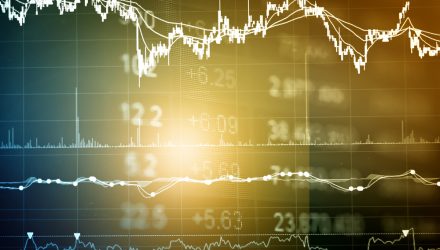As the global vaccination rollout began in 2021, it appeared all was well to dive back into the markets, but the new Omicron variant stressed the importance of bonds in a portfolio.
Bonds used as a safe haven can help absorb the market shocks when a large correction hits — like, say, the one seen last Friday as the Dow Jones Industrial Average plunged 900 points. When a hint of the unknown presents itself in the capital markets, investors can de-risk quickly, which makes bond exposure ideal.
“The post-Thanksgiving selloff and recovery serves as a reminder that uncertainty about the pandemic’s trajectory remains a threat to public health and markets after nearly two years,” MarketWatch notes. “Fed Chairman Jerome Powell, nominated for a second, four-year team, frequently has said the pace of the U.S. recovery and the central bank’s response will hinge on the virus.”
“Many strategists have been penciling in tighter financial conditions in the year ahead, but also continued global economic expansion,” MarketWatch adds. “Oxford Economics has a 4.5% forecast for global GDP growth in the coming year, but also a downside scenario of 2.3% growth if the omicron variant causes ‘serious side effects,’ including reduced vaccine effectiveness.”
Aggregate Exposure in Investment-Grade Debt
Investors looking for aggregate bond exposure in the current market environment will want to consider an aggregate option, particularly one that focuses on investment-grade debt. One such option is the Vanguard Total Bond Market Index Fund ETF Shares (BND).
BND presents bond investors with an all-encompassing, aggregate solution to getting U.S. bond exposure. It’s an ideal solution for investors seeking to complement their equities exposure to obtain a balanced portfolio.
BND seeks the performance of Bloomberg U.S. Aggregate Float Adjusted Index. The Bloomberg U.S. Aggregate Float Adjusted Index represents a wide spectrum of public, investment-grade, taxable, fixed income securities in the United States, including government, corporate, and international dollar-denominated bonds, as well as mortgage-backed and asset-backed securities, all with maturities of more than one year.
Bond investors can use BND as a traditional hedging component when the equities market goes awry. Short-term traders can also use the ETF, given its dynamic ability to be bought and sold quickly in the open market.
For more news, information, and strategy, visit the Fixed Income Channel.

